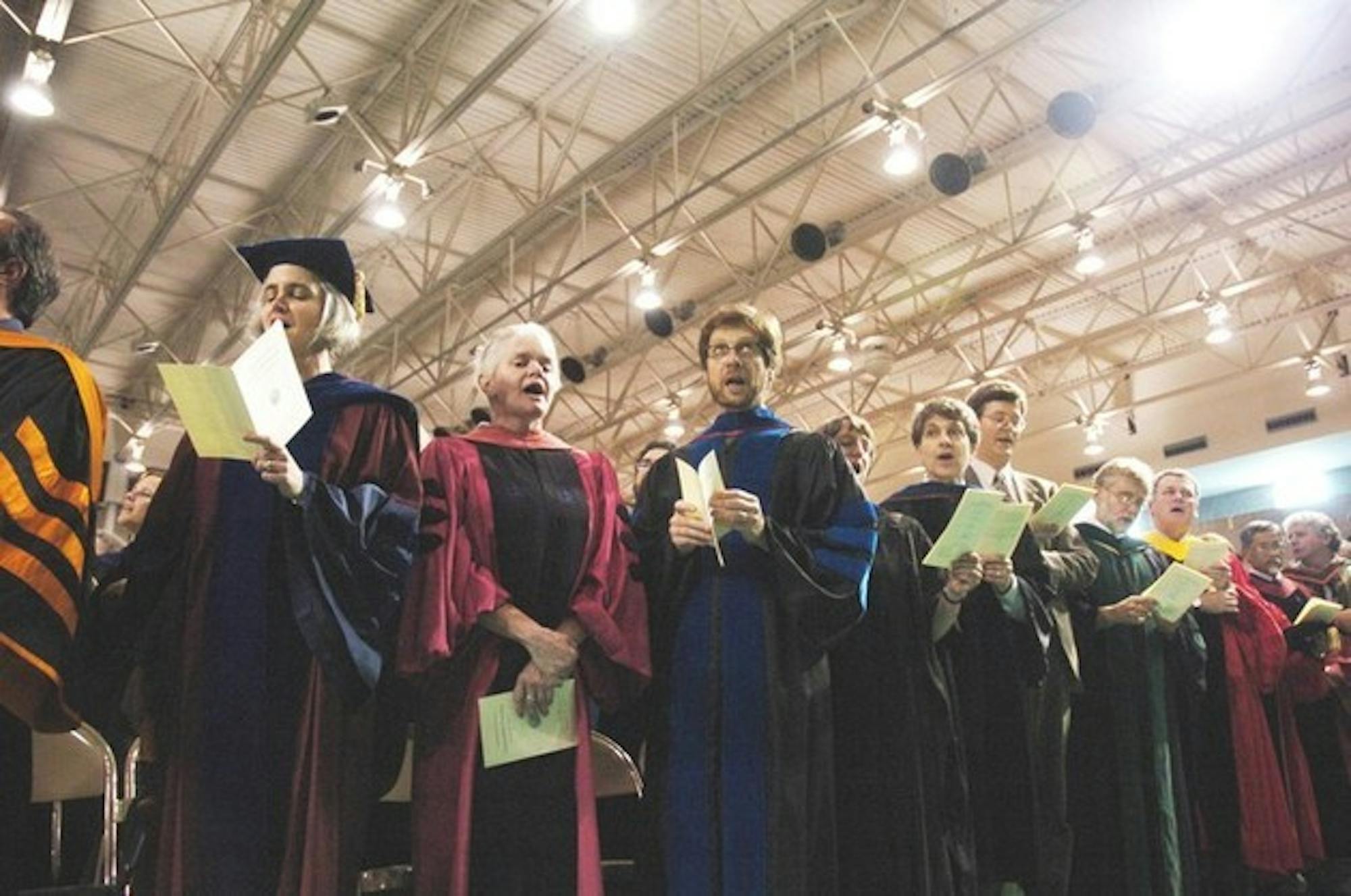"I felt such an obligation not to make this Convocation speech the typical 'welcome to Dartmouth, you're a great class' speech. I really, really wanted to challenge the Class of 2010 to get involved in these issues that are already going on on campus," Andreadis said in an interview with The Dartmouth.
Partly because of the reaction to last year's Convocation speech in which former Assembly President Noah Riner '06 urged the audience to look to Jesus for redemption, Andreadis said he consulted members of the Dartmouth community when writing his speech.
Andreadis began his speech by noting that the Class of 2010 has the greatest percentage of women -- 51.6 percent -- in any entering class in the College's history, drawing loud applause. However, he warned that numbers alone do not produce equality among the sexes.
"Being labeled a 'minority' has less to do with numbers and more to do with the way in which group identities are established within a cultural and social discourse," Andreadis said. "This discourse positions groups in relations of power that run deeper than any so-called 'political correctness' can ever really correct."
Andreadis then touched upon Dartmouth's history to explain how this 'cultural and social discourse' was developed, mentioning that Dartmouth was the last college in the Ivy League to admit women in 1972. Prior to coeducation, women were bussed onto campus to be students' dates on special weekends and many alumni still consider the exclusion of women imperative to the Dartmouth experience.
"Degrading women is still a ritualized item on Wednesday night's agenda in too many fraternity houses," Andreadis said in reference to fraternities' weekly meetings. "While dialogue and behavior in fraternities does not cause sexual assault, the dynamic in these spaces often presents a misleading representation of what is actually taking place."
Andreadis said that while most men can walk away from these fraternity meetings and dismiss the unhealthy conversation, others might see the discussions as validating behavior like sexual assault. Careful not to attack the Greek system, Andreadis acknowledged the positive work done by fraternity members in preventing sexual assault.
"Although some of my examples this morning cite fraternities as being implicated in many of these events, it's important to understand that sexism exists everywhere, and placing blame on the Greek system only serves to further divide campus and it stalls the dialogue around sexual assault by wrongly isolating discussions to only one aspect of campus life," he said in his speech.
Andreadis encouraged the Class of 2010 to take a stand against sexual assault. In an interview with The Dartmouth, he said his comments "put the ball in their court" and now is relying on their creativity to get involved and come up with solutions. The audience response was overwhelming, Andreadis said.
"Tim's speech was unexpected," Lauren Lesser '10 said. "I don't think it hit home with all of the freshmen, since we are new to the community and aren't yet aware of the issues here. But it definitely started discussion among us and will make us more aware of gender adversities in the coming years -- which I think was Tim's goal."
Andreadis' speech struck a cord with faculty members as well.
"I'm happy about [Andreadis' speech] because he really challenged students to take responsibility for the community that we create here at Dartmouth. I think the long and vociferous standing ovation speaks well of how his message was accepted. I actually saw some faculty leap out of their seats to give him the standing ovation," said Xenia Markowitt, director of the Center for Women and Gender.
Following Andreadis' speech, Juan Carlos Navarro '83, mayor of Panama City, Panama, spoke about his time at Dartmouth, encouraging new members of the community to make the most of their time here and to use what they learn here to make the most of their lives following college.
"I ask you not to waste this opportunity, dare to dream, dare to achieve, dare to live and by the way, have fun," Navarro said.
College President James Wright closed Convocation with a speech emphasizing the importance of individuality and focusing on the importance of developing one's own ideas with constant challenge and curiosity.
"Freedom of speech is less meaningful if the speakers are unwilling and unable to think and speak freely," Wright said.
Wright offered students the welcome speech they might have expected from Convocation, offering students tools to succeed at Dartmouth and in their professional and personal careers.
"Skepticism, reason, logic are values that can inform and can enable us to grow," Wright said. "They have no relationship to cynicism, emotion and dogmatism."
Andreadis, who was introduced as the first openly gay Assembly president, was pleased with the weight Wright put on individuality.
"I thought he did a good job of reaffirming the individual values that we have and also encouraging us to be curious and question our own beliefs. I think it meshed well with the other speeches," Andreadis said. "I felt like the whole ceremony had a really good tone to it [that] I don't remember having seen in recent years."




